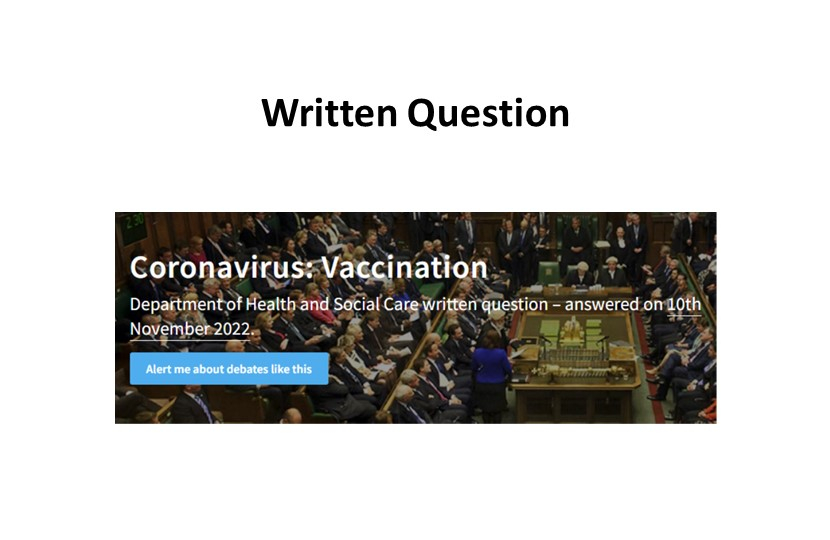
Chris Seeks To Clarify Covid Vaccine Information Exchange Across The EEA
Christopher Chope Conservative, Christchurch
To ask the Secretary of State for Health and Social Care, whether the MHRA and the NHS exchange information about suspected adverse reactions to covid-19 vaccines with the European Medicines Agency's EudraVigilance system; and whether the incidence of such adverse reactions in the UK is similar to that in the European Economic Area.
Neil O'Brien The Parliamentary Under-Secretary for Health and Social Care
Since leaving the European Union, suspected adverse reaction reports from the United Kingdom, excluding those from Northern Ireland, are subject to Human Medicines Regulations 2012, Part 11, and Schedule 12A. This requires the Medicines and Healthcare products Regulatory (MHRA) to share all Yellow Card reports on potential side effects to medicines with the World Health Organization’s (WHO) Uppsala Monitoring Centre and pharmaceutical companies.
According to the Northern Ireland Protocol, such reports from Northern Ireland remain under European Pharmacovigilance Legislation and therefore Directive 2010/84/EU and Regulation (EU) 1235/2010 apply. This requires the MHRA to share all such Yellow Card reports from Northern Ireland with the European Medicines Agency (EMA). In line with the legislation, the EMA also makes this information available to the WHO’s Uppsala Monitoring Centre and pharmaceutical companies. The MHRA removes all the person identifiers before sharing these reports.
Due to country-specific variations in the deployment of COVID-19 vaccines and access to exposure data, direct comparisons in the incidence of suspected adverse reactions to COVID-19 vaccines occur in different countries remain challenging. However, monitoring of the adverse reaction data for the COVID-19 vaccines has indicated the observed safety profiles of the vaccines used in the UK vaccination programme are similar to those observed in EudraVigilance.
- ENDS -
#78633



